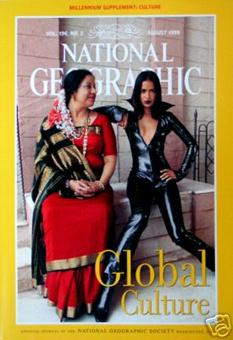Let me not ramble on the concept, but show you what happens. Friend A and Friend B meet after a long time. Both have been college mates and are in their late 20s or 30s.
‘Where are you working now?’ asks friend A; trying to make friendly conversation.
‘Oh, I am doing nothing. Family takes up all my time,’ answers friend B vaguely.
‘Oh, you left your job?’ asks friend A.
‘Yes, I couldn’t take the stress of taking care of a child/home/husband/in laws and working,’ says friend B now, her eyes flitting uncomfortably from one side to another.
‘But, B! You have to take control of your life! You cannot sacrifice your needs, yourself for your family! They will have to adjust,’ says friend A, concerned, proudly single, living alone in a two bedroom apartment and earning in lakhs.
Friend B looks at the table corner, trying to find a flint of dirt there and feeling that her life sucks.
Of course you would have figured out that the conversation is between two females (I really don’t see men asking these questions of each other or even being concerned about this–tell me if I am wrong). Friend A is a traditional feminist, with a successful career and a ‘living for myself’ mantra. Friend B represents everything the traditional feminists protest against—family bindings, sacrifice, traditional woman roles. They are of the same age.
 But this blog is not about who’s wrong or who’s right. That would be belittling both their choices. This is about how women are the ones expecting women to fit into an idea of feminist role or into an idea of traditional role. It’s not the men. We don’t need them there. Women are the protectors and keepers of roles—be it traditional or liberated roles.
But this blog is not about who’s wrong or who’s right. That would be belittling both their choices. This is about how women are the ones expecting women to fit into an idea of feminist role or into an idea of traditional role. It’s not the men. We don’t need them there. Women are the protectors and keepers of roles—be it traditional or liberated roles.
Traditionally (and still), it was the mother/mother-in-law figure who ensured that the girl would play a certain role. The elder woman is in this way a spokesperson for our patriarchal society—for the roles set for women, for decorum, for morality. (Beautiful shown by this old National Geographic cover.)
Feminism was a protest against these traditional roles in society. The women wanted equality, the women wanted to be the superior sex, the women wanted to work outside and to have freedom of choice. Some years (or decades, depending on which country /area you see) down the lines, feminism has made itself a ‘role’, a comfortable box, to live in. The definition varies, but not that much. It’s defined as exact opposite of the traditional role of women. If you don’t work, you are not a feminist. If you sacrifice your happiness for your family, you are not a feminist. If you wear a bra, you are not a feminist. If you dress sexy, you are not a feminist. If you leave a job and have babies, you are not a feminist. If you don’t distrust men, you are not a feminist. If you do a man’s cleaning, you are not a feminist. If you work in the kitchen, you are not a feminist. Somehow, feminism is defined by all the things that you should or shouldn’t do.
And ironically, it is we, the ‘liberated’ women living in urban cities who are trying to put these boxes on our gal pals, our cousins, our sisters—same age females—and make a judgment on them. Again, no men, if you notice.
I have been on both ends of the conversation. I have played the role of Friend A as well as Friend B. But then I wonder. Shouldn’t feminism be something that just lets you be whatever you choose to be? That doesn’t have rules? Isn’t it about freedom of choice?
Oh, there are loads of disclaimers for the terms used in this blog, but maybe I will leave it open to criticism. Suicide I know, but well.

I dont feel Feminism is a single school or thought process which can be termed as anti-traditional. Just take radical feminism as an example, it may sound like anti-man kind of philosophy but it is actually not. The radicality is towards the approach of patriarchal system which allow for unidirectional way of understanding things. Radical feminism’s ideology is probably you are talking about in terms of choices. As in its not that you have to be either anti-traditional or traditional, you can choose from any of the buckets. Though I still feel there is a lot of patriarchal undercurrent in most of our things. Recently I attended a seminar on dance and body and was forced to think about the social construction of woman’s sexual body. It became clear that the whole idea of the negative connotation with the sexual expression of woman’s body can be because of the power struggle between sexes. Men will have no clue of any power control if the women start expressing their sexual body. But the saddest part is that women are the gatekeepers of this exploitation and obviously organized religion plays a big part in that. Once you deconstruct the whole apparent negativity of women sexuality, there can be a feminist revolution. (I am hoping it happens in my life time)
Another sad part of this patriarchal construction is that men created these rules for having a control of power but they are equally suffering in this scenario. That’s why I feel in an oppression, both the oppressor and oppressed suffer equally, difference is later’s suffering is visible and former’s suffering is not.
Even ‘radical feminism’ is a tag which defines what you should/can do or not do. Ideally, any kind of tagging is a box, a definition of what you are and are not. And yes, sexuality is one of the first gatekeepers, as you so well put it, of patriarchal values. That’s the reason that virginity is sacrosanct, clothes uncovering certain body parts are considered indecent/immoral, menstrual cycles are considered unholy, and a woman without any ‘male protectors’ (be it sexually aware, independent women) is a grave threat to society.
As far as I remember learning in school, the eraly feminists and the whole sufragette movement in Europe was solely about the right to freedom and CHOOSE what you wanted to be and not have anybody question it. It’s over the decades that feminism became what it is today. The whole idea of femism as it was initially is fairly lost as far as respecting personnal choice.
Do you remember that Axe temptation ad with the chocolate guy and women drooling over him? That very ad has been banned in France apparently, the Feminist thought it was degrading to women to have them drool after a chocolate man…I say give me such an eye candy anytime 😉
Yes, I completely agree with you Cynth! Yes, the early feminism was all about choices, but somewhere, it’s become in the box rather than out of it. I call it militant feminism.
And I loved the choco man ad 🙂 though a choco perfume idea gives me shudders 😛